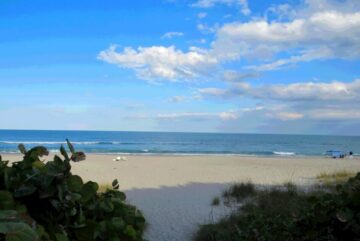Nestled between bustling New York City and historic Philadelphia, the Garden State boasts a dynamic blend of vibrant city life, picturesque shorelines, and tranquil countryside. With a robust and diverse population, New Jersey is a microcosm of America, where residents enjoy a high quality of life. However, New Jersey does have its faults that you should be aware of. Whether you’re searching for homes for sale in Newark or apartments in Trenton, read on for the 10 pros and cons of living in New Jersey.
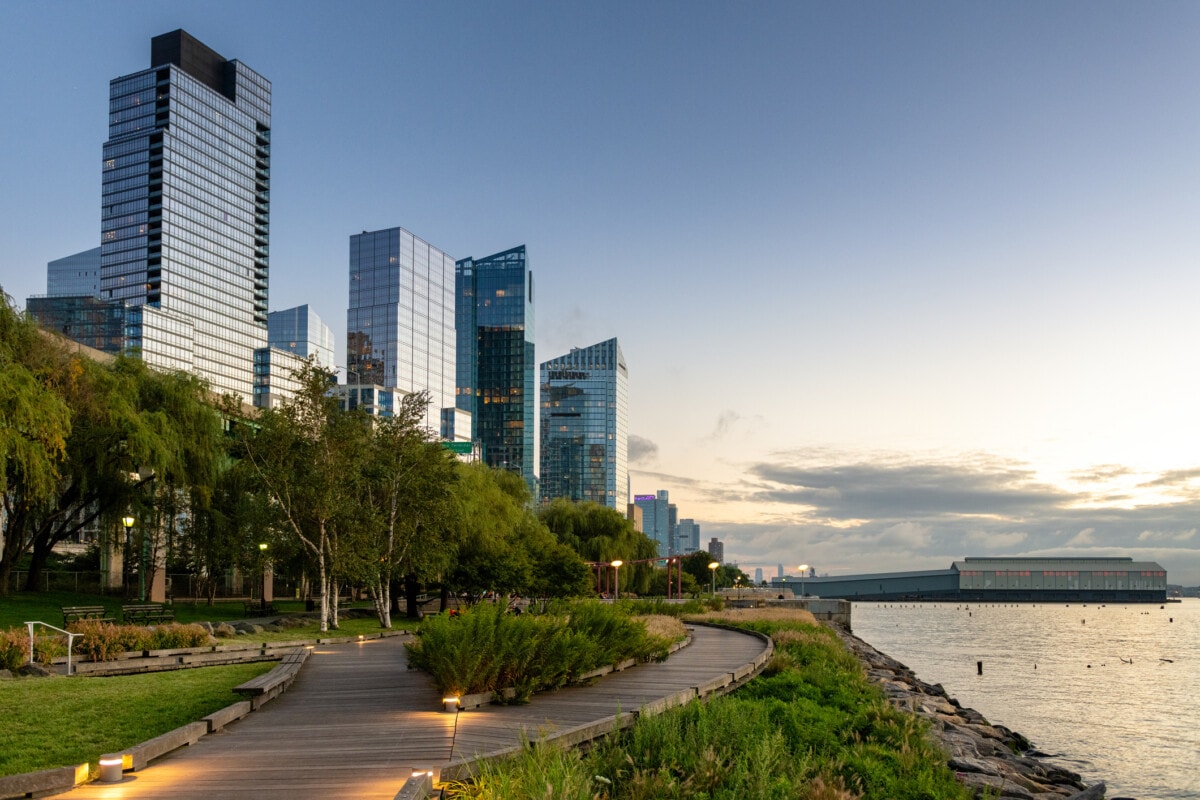
Pros of living in New Jersey
1. Proximity to major cities
One of the major advantages of living in New Jersey is its unparalleled proximity to major cities like New York and Philadelphia. This geographical advantage is often seen as a significant benefit for residents, as it opens up a world of opportunities for work, entertainment, and culture. Commuting to New York City, for instance, is a common practice for many New Jerseyans, allowing them to access the bustling job market, world-class dining, and iconic landmarks without sacrificing the comforts of suburban life. In addition, residents can quickly attend Broadway shows, explore renowned museums, or enjoy professional sports events in these nearby urban hubs.
2. Beautiful beaches
New Jersey’s coastline boasts a treasure trove of beautiful beaches that make it an attractive place to live. With over 130 miles of pristine shoreline along the Atlantic Ocean, the state offers residents the perfect escape from their daily routines. The state’s beaches, such as the Jersey Shore, Wildwood, Cape May, and Long Beach Island, are renowned for their stunning, vast sandy stretches, ideal for sunbathing, swimming, and water sports.
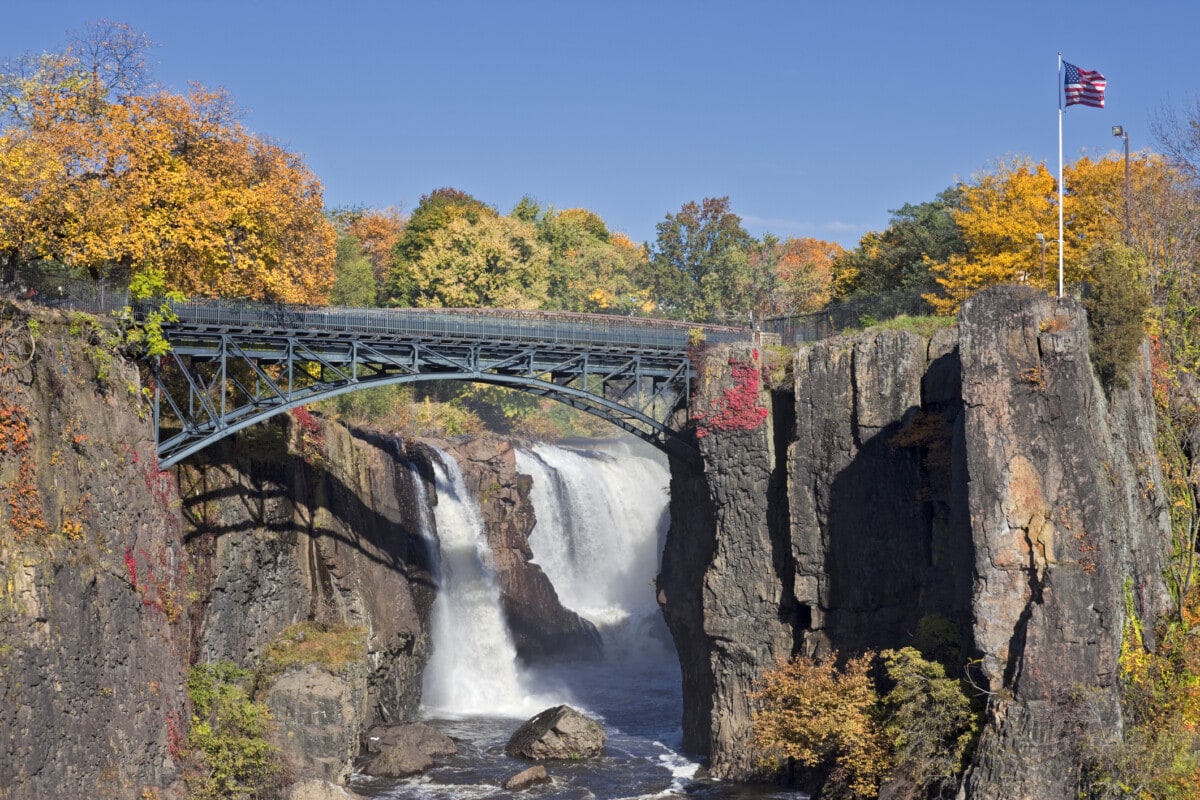
3. Various outdoor recreational activities
New Jersey’s diverse landscape provides abundant outdoor recreational activities, making it an ideal place for nature enthusiasts and adventure seekers. From the stunning Appalachian Highlands in the north to the serene Pine Barrens in the south, the state offers a wide range of options for outdoor enjoyment. Hiking and camping opportunities abound in the state’s numerous state parks and forests, like High Point State Park and Wharton State Forest, where you can explore scenic trails and escape into the heart of nature.
4. Good public transportation options
The New Jersey Transit system offers extensive train and bus services that link various parts of the state, making daily commutes or weekend getaways to urban centers a breeze. The PATH train connects New Jersey to Manhattan, providing a fast and efficient means of traveling to the heart of New York City. Additionally, the state’s ferry services offer a scenic and enjoyable way to traverse the Hudson River. The presence of reliable public transportation not only reduces the need for car ownership but also helps ease congestion and contributes to environmental sustainability.
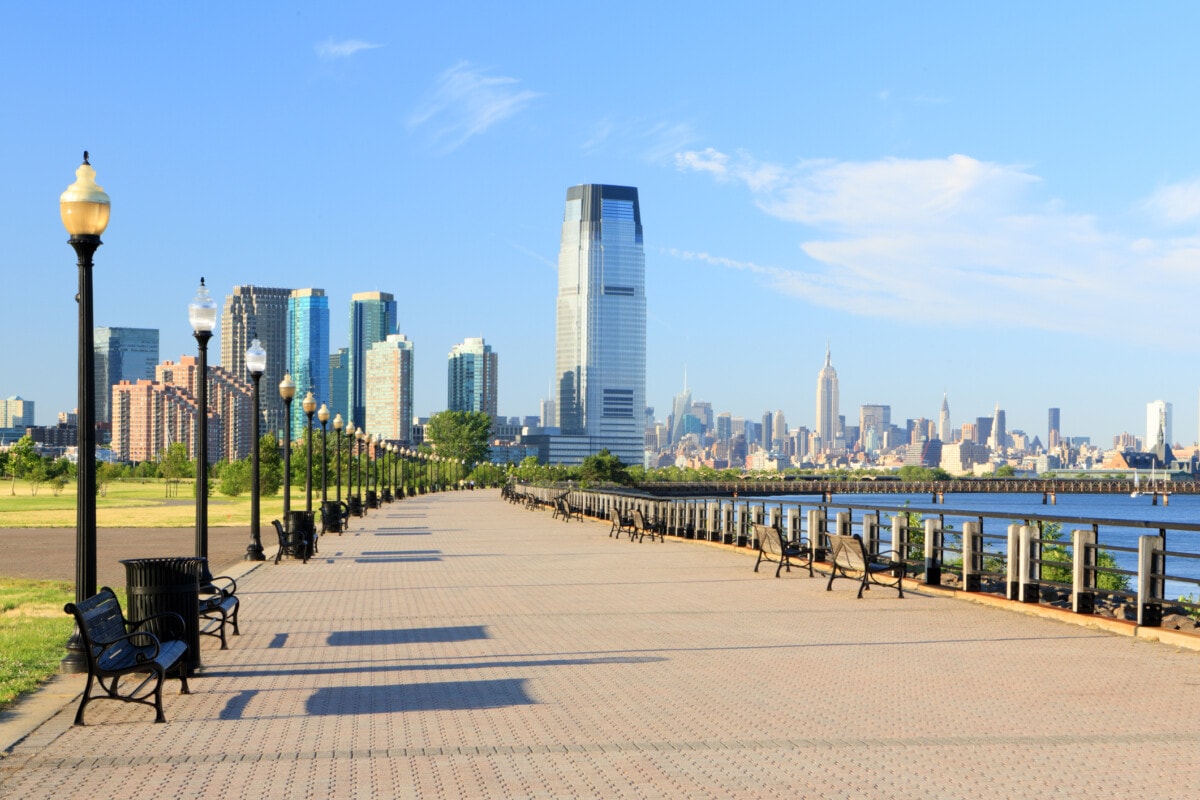
5. Strong job market
New Jersey’s dynamic job market, strategically positioned in the Northeast corridor, provides various employment opportunities across sectors such as corporate headquarters, pharmaceuticals, healthcare, technology, finance, logistics, and academia. The state’s commitment to economic development, well-developed infrastructure, and a skilled workforce make New Jersey an attractive destination for jobseekers.
Cons of living in New Jersey
1. High cost of living
Living in New Jersey comes with a caveat, as the state is known for its high cost of living. The median sale price for homes in the Garden State is notably higher at $493,600 compared to the national median of $411,868, making housing affordability a significant challenge for residents. Additionally, the cost of living in Newark, one of New Jersey’s major cities, is a striking 18% higher than the national average. While the state offers many opportunities and amenities, the elevated expenses for housing, utilities, and everyday necessities can present a financial burden for many. Despite these high costs, there are affordable places to live in New Jersey outside popular metros.

2. Heavy traffic congestion
One of the notable drawbacks of living in New Jersey is the persistent issue of heavy traffic congestion. The state’s strategic location, with its proximity to major metropolitan areas like New York and Philadelphia, often results in densely populated roadways and lengthy commutes, which can be a source of frustration for residents. The extensive network of highways and densely populated urban centers, coupled with a lack of efficient public transportation in some areas, can lead to daily gridlock and time-consuming commutes.
3. Below-freezing winters
New Jersey’s winters can be characterized by their harsh and unpredictable nature, often considered a downside of living in the state. With temperatures frequently dropping below freezing and the potential for significant snowfall, residents must contend with cold weather conditions and the accompanying challenges. Snow and ice can lead to slippery roadways, traffic disruptions, and the need for extensive snow removal efforts. Moreover, the winter weather can limit outdoor activities and affect daily routines.
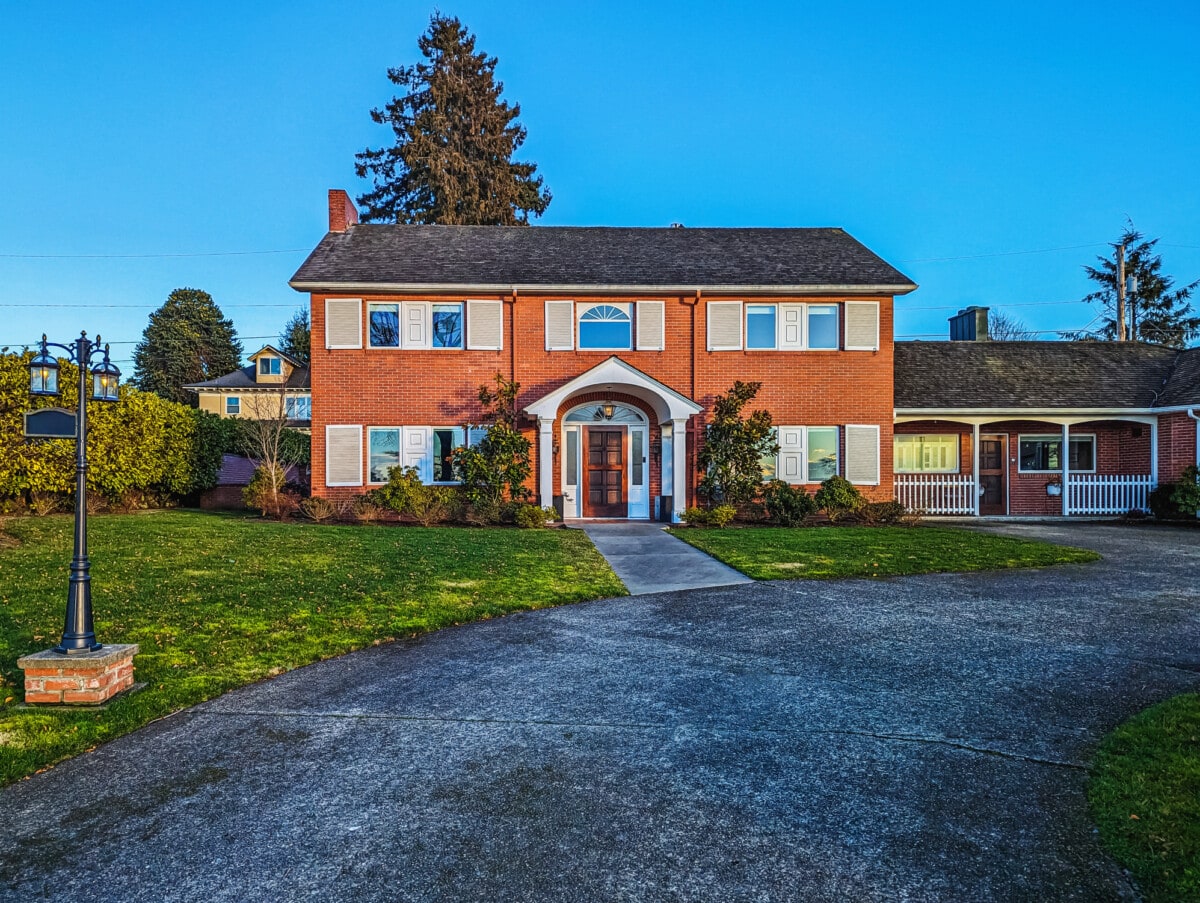
4. Highest property taxes in the country
New Jersey holds the dubious distinction of having the highest property taxes in the nation, and this is often considered a significant drawback of living in the state. The effective property tax rate in New Jersey stands at a staggering 2.26%, which is more than double the national average of 0.99%. This burden of property taxes places a substantial financial strain on residents, affecting their overall cost of living and affordability. High property taxes can make homeownership and renting more expensive. It’s a factor that individuals and families must consider when considering their financial stability and long-term plans in the Garden State.
5. Vulnerability to coastal storms and flooding
New Jersey’s vulnerability to coastal storms and flooding is a significant concern for the state, especially in its coastal and low-lying areas like Cape May. Positioned along the Atlantic Ocean, New Jersey faces a heightened risk of hurricanes, nor’easters, and severe storms that can lead to devastating flooding, property damage, and disruptions to daily life. Rising sea levels and aging infrastructure further exacerbate the state’s susceptibility to these natural disasters. Coastal communities often find themselves on the front lines of these challenges, necessitating costly mitigation efforts and insurance premiums.
Pros and cons of living in New Jersey: Bottom line
Living in New Jersey offers a complex blend of advantages and challenges. Ultimately, life in New Jersey is a mix of vibrant urban and suburban experiences, a rich tapestry of culture, and a connection to the stunning natural beauty of the Garden State. While the drawbacks are undeniable, they are often balanced by the state’s many assets. You’ll want to weigh the pros and cons of living in New Jersey before deciding if this state suits you.
- SEO Powered Content & PR Distribution. Get Amplified Today.
- PlatoData.Network Vertical Generative Ai. Empower Yourself. Access Here.
- PlatoAiStream. Web3 Intelligence. Knowledge Amplified. Access Here.
- PlatoESG. Carbon, CleanTech, Energy, Environment, Solar, Waste Management. Access Here.
- PlatoHealth. Biotech and Clinical Trials Intelligence. Access Here.
- Source: https://www.redfin.com/blog/pros-and-cons-of-living-in-new-jersey/
- :is
- :not
- :where
- $UP
- 10
- a
- abundant
- Academia
- access
- across
- activities
- addition
- Additionally
- ADvantage
- advantages
- Adventure
- affect
- affecting
- Aging
- Allowing
- along
- also
- amenities
- america
- an
- and
- Appalachian
- ARE
- areas
- AS
- Assets
- At
- attend
- attractive
- average
- aware
- balanced
- BE
- Beach
- Beaches
- beautiful
- Beauty
- before
- below
- benefit
- between
- Blend
- boasts
- Bottom
- breeze
- BRIDGE
- burden
- bus
- bustling
- but
- by
- camping
- CAN
- cape
- car
- Centers
- challenge
- challenges
- characterized
- Cities
- City
- coastal
- cold
- comes
- commitment
- Common
- Communities
- commuting
- compared
- complex
- Concern
- conditions
- congestion
- connection
- connects
- Cons
- Consider
- considered
- considering
- contributes
- Corporate
- corridor
- Cost
- costly
- Costs
- coupled
- Culture
- daily
- damage
- Deciding
- Despite
- destination
- devastating
- Development
- dining
- disasters
- disruptions
- distinction
- diverse
- does
- double
- downside
- drawbacks
- Dropping
- dynamic
- ease
- Economic
- Economic Development
- efficient
- efforts
- elevated
- employment
- enjoy
- enjoyable
- Entertainment
- enthusiasts
- environmental
- Environmental Sustainability
- escape
- especially
- events
- everyday
- exacerbate
- expenses
- expensive
- Experiences
- explore
- extensive
- external
- faces
- factor
- families
- FAST
- faults
- finance
- financial
- financial stability
- Find
- For
- forest
- Freezing
- frequently
- from
- front
- frustration
- further
- Garden
- geographical
- good
- Have
- having
- Headquarters
- healthcare
- Heart
- heavy
- heightened
- helps
- High
- higher
- highest
- highways
- hiking
- historic
- holds
- Homes
- House
- housing
- However
- HTML
- HTTPS
- hubs
- ICE
- iconic
- ideal
- if
- in
- individuals
- Infrastructure
- instance
- insurance
- internal
- into
- island
- issue
- IT
- ITS
- Jersey
- Job
- jpg
- known
- Lack
- landscape
- lead
- levels
- Liberty
- Life
- like
- LIMIT
- lines
- LINK
- live
- living
- location
- logistics
- Long
- long-term
- major
- make
- Making
- many
- Market
- max-width
- May..
- means
- mitigation
- mix
- more
- Moreover
- Museums
- must
- nation
- National
- Natural
- Nature
- necessitating
- necessities
- Need
- network
- New
- New Jersey
- New York
- new york city
- North
- notable
- notably
- numerous
- ocean
- of
- offer
- Offers
- often
- on
- ONE
- only
- opens
- opportunities
- Options
- or
- Outdoor
- outside
- over
- overall
- ownership
- Park
- parks
- parts
- perfect
- pharmaceuticals
- philadelphia
- Picturesque
- Place
- Places
- plans
- plato
- Plato Data Intelligence
- PlatoData
- Point
- Popular
- populated
- population
- positioned
- potential
- practice
- presence
- present
- professional
- property
- PROS
- provides
- providing
- public
- public transportation
- quality
- quickly
- range
- Read
- Recreational
- Redfin
- reduces
- reliable
- removal
- Renowned
- residents
- Results
- Rich
- rising
- Risk
- River
- robust
- routines
- sacrificing
- sale
- sandy
- scenic
- SEA
- searching
- Sectors
- seen
- Services
- severe
- should
- Shows
- significant
- skilled
- snow
- some
- Source
- South
- Sports
- sports events
- Stability
- staggering
- stands
- State
- storms
- Strategic
- Strategically
- strong
- Stunning
- substantial
- such
- suits
- susceptibility
- Sustainability
- swimming
- system
- tapestry
- tax
- Taxes
- Technology
- than
- that
- The
- The State
- their
- Them
- themselves
- There.
- These
- they
- this
- time-consuming
- to
- traffic
- Train
- transit
- transportation
- Traveling
- traverse
- Ultimately
- undeniable
- unparalleled
- unpredictable
- urban
- utilities
- various
- Vast
- vibrant
- vulnerability
- want
- Water
- Way..
- Weather
- webp
- weekend
- weigh
- wharton
- when
- whether
- which
- while
- wide
- Wide range
- Winter
- with
- without
- Work
- Workforce
- world
- world-class
- york
- you
- zephyrnet




